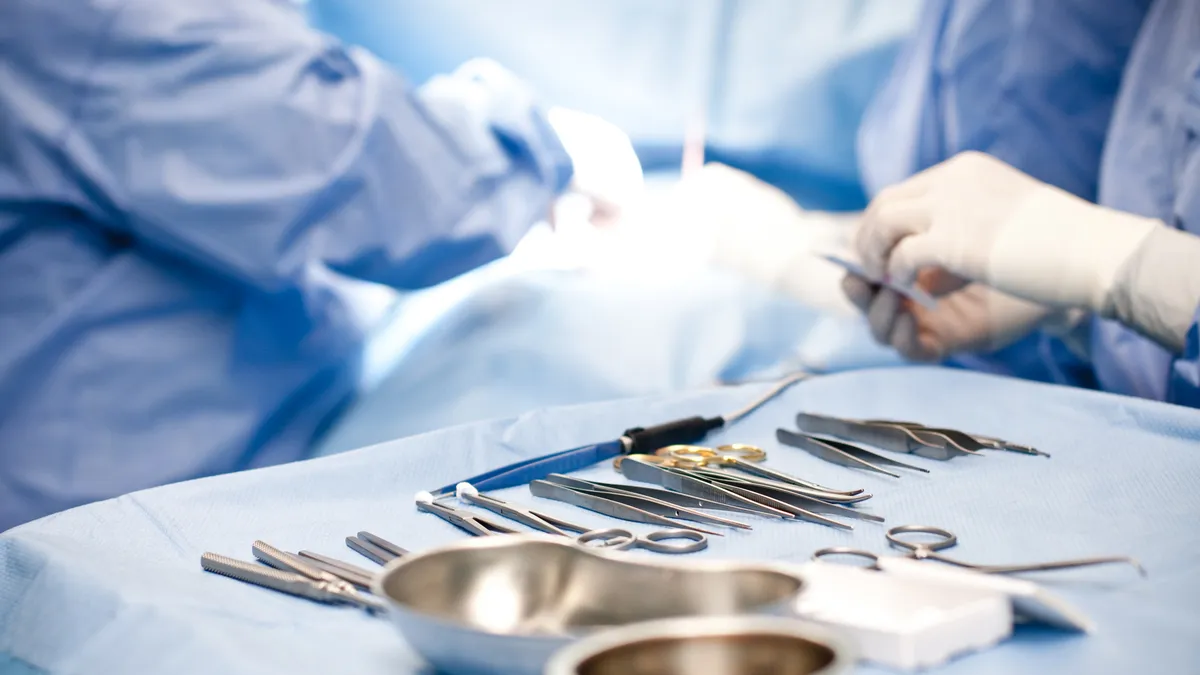Dive Brief:
- BD on Thursday reported a 1.4% jump in revenues to $4.25 billion during its fiscal second quarter, up 2.4% on a currency-neutral basis, compared to the year ago period. But in April, BD saw a decline in surgery revenues of 50% to 70% as a result of elective procedure deferrals.
- CFO Chris Reidy noted surgery revenues in China are still approximately 50% of pre-pandemic expectation and in the U.S. and Europe surgical and interventional revenues are down 60% to 90% in April. Reidy pegged the cost of lost revenues at $60 million in BD's surgery business and $50 million in peripheral intervention. Overall, he estimated that COVID-19 had a negative financial impact of about $240 million in April.
- Despite launching new diagnostics to identify COVID-19 and ramping up production of medical devices in response to the pandemic, the uncertainty led BD to join scores of other medtechs in withdrawing fiscal year 2020 revenue and earnings guidance.
Dive Insight:
BD is far from alone among medtechs taking a significant hit from the slowdown in non-COVID-19-related procedures.
CEO Tom Polen said the hernia and peripheral arterial disease businesses are bearing the brunt of the downturn. And even amid some states taking steps toward reopening the economy and hospitals making efforts to resume the surgeries, patients might not be ready.
Although 80% of BD's customers want to begin resuming elective procedures by early June, Polen warned "there are some questions of patients' readiness to return" particularly for procedures that "fall in the mid-range" of prioritization.
When it comes to diagnostics, despite strong demand for COVID-19 test products, deferral of routine care is having a "significant negative impact on diagnostic testing overall which, of course, leads to temporarily lower use of sample collection devices," according to Polen.
Overall, Reidy told investors that coronavirus reduced BD's revenue growth by about 140 basis points in the second quarter. "This is about double the impact we had estimated at the time of our last earnings call, which was prior to the escalation of the virus in China and the global spread of COVID during the last two weeks of March," Reidy said.
Moving forward, Reidy noted that the key to the recovery for BD is the return to more typical healthcare use.
However, he warned that while BD has seen some improvement in China, the U.S. and Europe are lagging.
Current cost-cutting measures include temporary employee furloughs, executive salary reductions, a near-total hiring freeze, and the suspension of the 401(k) match.
At the same time, the medtech giant is continuing to deal with problems with its Alaris infusion pump system and modules.
FDA in early March reported certain infusion pump systems recalled by BD on Feb. 4 had resulted in 55 injuries and one death. On Thursday's second quarter call, the company said it is working with the agency to address certain features of the Alaris products and has recorded a charge of about $200 million for the estimated future costs of the remediation effort. But, warned that these costs could increase.
Due to the COVID-19 pandemic, BD no longer plans to submit an Alaris 510(k) filing in the fourth quarter. The company had intended to seek clearance for the system including a new version of software covering all prior modifications and addressing the current recall remediation. In February, BD informed customers it was suspending distribution of Alaris until it had an agreement with FDA on the path forward.
However, Polen on Thursday said the company has established a process for existing Alaris customers in the U.S. to receive additional pumps "upon certification of medical necessity."
Reidy noted that Alaris sales based on medical necessity approval in the second quarter were about $10 million, but these orders were not filled and revenue was recorded in April. He said BD anticipates hospital demand for these pumps will continue in the third quarter as they continue to treat COVID-19 patients.












